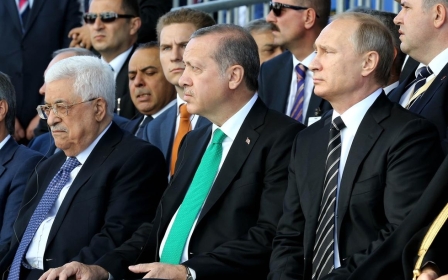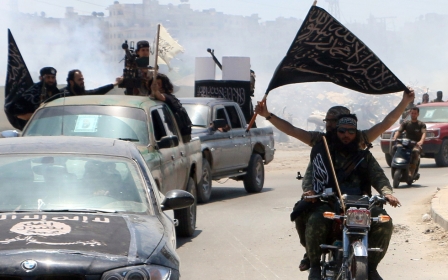EU, Iran stress need to end 'suffering' in Syria ahead of planned peace talks
The European Union's diplomatic chief and Iran's foreign minister in New York on Saturday to discuss the war in Syria, ahead of a UN push for peace talks.
A key ally of Syrian President Bashar al-Assad, Iran has until now been kept out of UN diplomatic efforts to end a four-year war that has killed more than 240,000 people and forced millions to flee.
EU diplomatic chief Federica Mogherini and Iranian Foreign Minister Mohammad Javad Zarif "underlined the need to bring the war in Syria, which has caused so much suffering, to an end," according to an EU statement issued after the meeting.
"They expressed their readiness to cooperate within UN-led efforts and exchanged views on how to contribute to that end," it added.
US Secretary of State John Kerry is also due to meet with Zarif on Saturday in New York. as is Russian Foreign Minister Sergei Lavrov on Monday.
The United Nations had hoped to get a new round of peace talks off the ground this month, but Russia's military build-up in Syria has thrown a spanner in the works.
The UN peace talks, led by envoy Staffan de Mistura, would be coupled with the creation of an international contact group that would for the first time include Iran, although Saudi Arabia opposes the plan.
A flurry of meetings on the sidelines of this year's UN General Assembly meeting will seek to forge a new consensus on the way forward in Syria, where fighting has driven four million people from their homes.
US President Barack Obama will sit down with Russian leader Vladimir Putin on Monday for talks that could prove crucial in charting the way forward.
The foreign ministers of the five permanent Security Council members - Britain, China, France, Russia and the United States - will meet with De Mistura and UN Secretary-General Ban Ki-moon on Tuesday.
Russia - which along with Iran is one of the few remaining backers of the Damascus rulers - has sent troops and warplanes to Syria, along with fresh arms supplies to Assad's forces.
Moscow wants the West and Arab countries to cooperate in the fight against the Islamic State jihadists that have seized swaths of territory in Iraq and Syria.
The West has long maintained that there can be no cooperation with President Assad, whose troops and allies they say have killed far more civilians than militants fighting in the country.
However, several Western leaders have recently signalled a possible policy shift on Syria.
UK Foreign Secretary Philip Hammond said this month that Assad could remain in power as part of a transitional government, while German Chancellor Angela Merkel last week insisted that Assad must be part of a solution in Syria.
Middle East Eye propose une couverture et une analyse indépendantes et incomparables du Moyen-Orient, de l’Afrique du Nord et d’autres régions du monde. Pour en savoir plus sur la reprise de ce contenu et les frais qui s’appliquent, veuillez remplir ce formulaire [en anglais]. Pour en savoir plus sur MEE, cliquez ici [en anglais].




